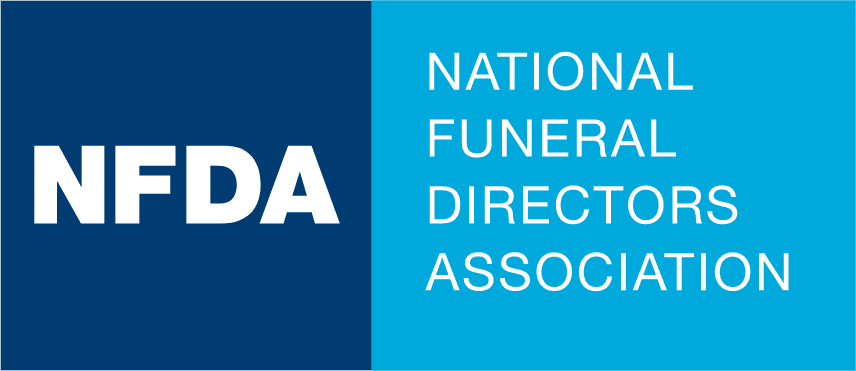Platt's Funeral Home History
Platt’s Funeral Home has a long history and commitment to serving Augusta, Ga. and its surrounding communities. We are proud to hold the first embalming license in the state of Georgia, and invite you to explore our legacy.
Charles A. Platt, Founder
Nearly 200 Year History Serving Augusta
For nearly 200 years, Platt's has been deeply involved in the life and customs of Augusta. When Charles A. Platt arrived in 1837 and opened Platt's Furniture Emporium on Broad Street, Andrew Jackson was President of the U.S. and Augusta was about to become the terminus of the first railroad and the center of the Georgia cotton trade.
A native New Yorker, Platt found a ready market for his elegant furniture among the affluent society that had grown up in Augusta after the Revolutionary War. More important, he understood the need for a man of culture and good taste to provide more than just coffins for the elegant funerals that were becoming so important in the Victorian Age. Death, in the nineteenth century, was treated with great pomp and ceremony, and Platt was ready to see that funerals in Augusta were performed with tasteful dignity.
The funeral of a prominent citizen brought everyone in town out to watch as the procession made its way through the streets to Magnolia Cemetery. Black-edged cards were hand delivered to all the families and friends of the deceased who would congregate at the home and join in the procession. The horse-drawn hearse, which led the procession was black with glass sides etched with funeral designs and was decorated with silver and gold. Under a huge canopy of ostrich plumes, a polished casket with metal handles decorated with moldings and inscribed plates could be glimpsed by onlookers, surrounded by masses of flowers. Six black horses with black trappings and plumes of black ostrich feathers attached to their headbands drew the casket slowly and sedately to its last resting place.
Behind the hearse came carriages and coaches carrying mourners in the strict order prescribed by etiquette. Gentlemen wore full black mourning, with crepe bands around their top hats; ladies were dressed in many yards of black crepe, with heavy veils, and carried black-edged handkerchiefs held to their eyes, and black gloves. Mourning jewelry of jet, cameo, pearl, gold, or silver was worn. Augustans knew that their dead were honored as well as those of any city in the country.
The First to Bring Embalming to Georgia
Before Platt left New York, he had learned a process called embalming that had been introduced there by Thomas Holmes, the father of modern embalming.
Until this time, especially in Georgia summers, funerals had to be held immediately, as there was little known about preservation. Bodies were washed, dressed and laid out at home by members of the family in accordance with custom.
Many people were terrified of being buried alive and had contraptions put in coffins to sound an alarm if there was movement inside. In the very early days, there were do-it-at-home embalmers. An early ad for Platt Brothers advertised embalming fluid for sale. Augustans learned quickly that it was much more satisfactory to leave the job to Platt's.
Military Acts of Service
As Platt's Furniture Emporium flourished, Charles Platt entered into the civic and cultural life of the city and learned to love the people of Augusta and understand their problems. In 1861, when Georgia went to war against the North, he had already helped to organize the Clinch Rifles.
There is a contemporary print of him presiding over the ceremony of raising the first Georgia Confederate flag over the Augusta Arsenal when it was taken over by the Confederacy. In command of the regiment, he performed distinguished duty in the Western Campaign and returned to Augusta, which had become a Confederate medical center, to help in the transportation of wounded and burying of dead from the hospitals there. When General Leonidas Polk was killed in battle near Atlanta, it was Platt who arranged for his elaborate military funeral and burial in the crypt of St. Paul's Church.
This was only one of the many important funerals Platt directed. Most of the early records have been destroyed by fire, but it is known that Major General David E. Twiggs, who commanded the Western Department of the U.S. Army in the Mexican War, was buried with the help of Platt, as was General W.H.T. Walker of the Confederacy, Governor Charles A. Jenkins of Georgia and Charles Shaler Smith who built Augusta's Confederate Powder Works and the first cantilever bridge in America.
W. Edward “Boss” Platt Takes Over
In 1873 when Charles Platt was laid to rest, his son, W. Edward Platt, was ready to take his place. Educated in Stuttgart and at the University of Heidelberg before coming home to an apprenticeship, he was able to take his place in the civic and cultural life of Augusta as well as in the profession of his father. Nicknamed "Boss" Platt for a famous Senator, Edward Platt of Augusta became a boss in the best sense of the word.
In those days most families had funeral watches at home, with the casket open in the parlor. Friends and relatives came in to give their condolences and eat the quantities of rich food that were sent by neighbors. From the time of death until the parlor of the house could be prepared, the home’s curtains were drawn, mourning wreaths hung on the doors, and black clothes were prepared for the family. Boss Platt furnished a building where the body could be readied for viewing and kept until the house was ready.
Platt’s Funeral Home Established on Crawford Avenue
Platt soon bought the old Bohler Mansion at 721 Crawford Avenue, changing the name to the W. Edward Platt Funeral Parlor, and later to Platt's Funeral Home.
At the new site, the house was completely redecorated with elegant furnishings in the taste of the times so that families would feel that their dear one was being cared for as he would be at home. Arrangements could be made quietly and tactfully, away from the trauma of the bereaved home. Well-known and well-liked by the other men in the funeral business, Platt spearheaded the organization of the Georgia Funeral Directors' Association to safeguard the ethics of the profession and to improve its image in the eyes of the public. The charter members made him president in 1877.
Georgia’s First Embalming License & College of Embalming
In 1900, he initiated legislation in the Georgia Legislature for the creation of a State Board of Embalmers, and was issued License #1 when the bill passed. The next year he founded the Southern College of Embalming in Augusta, the first in the state. Many of the older generation of funeral directors were his students, including R. E. Elliott, founder of Elliott's Funeral Home in Augusta.
Caring for Families and the Community
Platt's funeral directors and assistants were all trained in the best ways to help families in their various expressions of grief – at the time of bereavement they should be the family's best friend, to be leaned on by the widow or widower, father or mother; that although not legally pledged to secrecy, funeral directors are often trusted with privileged information, and that trust should be held sacred. Platt's was always ready to adopt new and better ways of doing things. When horse drawn hearses and ambulances were replaced by motor cars, Platt's ambulances were always the newest and best equipped. For many years, ambulance service was furnished free of charge.
Always concerned with the welfare of the people of Augusta, as Chief of Augusta's first volunteer fire department, he learned firsthand the tragedy of fires. By 1887 he had convinced the City Fathers of the need for a regular paid fire department. Later he was able to promote the installation of fire alarm boxes over the city. He was a lifelong member of St. Paul's Episcopal Church, where he served on the Vestry and worked devotedly for the health and religious welfare of its members.
John David Curtis
In his last illness, he asked one of his former students, John David Curtis, a funeral director from Thomson, Ga., to take over the management of Platt's, requesting that the name not be changed. The son and grandson of funeral directors, Curtis was able to carry on the high standards of Boss Platt and his father.
In 1938 he renovated the Crawford Avenue mansion, improving the grounds with a flower garden, fountain and goldfish pond that added to the peaceful air of the home. As a member and sometime president of the Kiwanis Club, he carried on the tradition of civic effort. As president of the Georgia Funeral Directors' Association and a member of the National Selected Morticians, he devoted his time to the betterment of his chosen profession. During this time Curtis was assisted by Julian Thomas Moody until his death in 1949.
Upon the death of John David Curtis in 1957, the business was carried on in the same fine tradition by Edward Platt Grealish until his death in 1966, and by Francis Truitt Rabun until his death in 1975.
Martha Maher Curtis & Family
During this time John David Curtis' daughter-in-law, Martha Maher Curtis, became a licensed funeral director. Subsequently she became executive director in 1974 and later president with William L. Putnam as managing director. She was supported throughout the years by diligent managers such as Robert H. Powell, Albert H. Jackson, and her son Michael J. Curtis who came into the business in 1990.
Curtis assumed her duties with dedication and commitment taking Platt's to new heights. She streamlined the business by training an exceptional staff. The Crawford Avenue location was given a new look of sophistication providing a feeling of comfort and healing to grieving families. Employing new and innovative ideas, Curtis was one of the first in the country to place profit in service over merchandise, preparing for the rise in cremation and decline in profits. She took seriously the firm's membership in National Selected Morticians attending meetings regularly as well as contributing when needed.
In 1992 Curtis recognized a need for expansion into Columbia County. A new Platt's West opened its doors on Belair Rd. in Evans, Ga. offering the same excellent service to a new community.
After her death in 1999, Curtis' daughters, Kathleen “Kitty” Kilpatrick Curtis and Corinne Hatcher Curtis understood the importance of Platt's remaining a family business and continued the tradition set forth by their grandfather and mother with the assistance of operations managers, consecutively, Bryan Evans and Herb Gilstrap.
Kitty passed in 2019, and today Platt’s is still family owned and operated by Corinne and Kitty’s children Will Anderson and Lisa Grolemund with Will overseeing day-to-day operations.
After nearly 200 years, Platt's is proud to continue to offer an outstanding staff whose skills are continually being updated to maintain a higher degree of service and care. The beautifully appointed buildings elegantly evoke peace, light and consolation. In order to meet the needs of the 21st century family, a more advanced level of technology is constantly being implemented.
At his retirement address to the Georgia Funeral Directors' Association, John David Curtis said, "We cannot stand still while the world moves on. We must move with it or we will be asked to step aside while the procession goes on. The public has a keen eye for comparisons and, we must not forget, is quick to detect the difference between what it calls an honest effort to do the best we can and some funeral director who is living in the past and doing the best he knows how with his antiquated outfit. We should and must render a real service."
At Platt's, we believe these words still ring true today to serve as a reminder and guide to our future.












